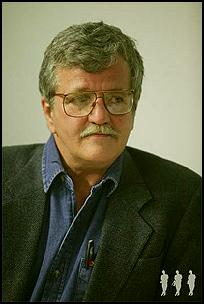"Harsh Methods" Aren't Torture, Says the New York Times
FAIR ACTION ALERT: "Harsh Methods" Aren't Torture, Says the New York Times
"The New York Times, revealing the interrogation techniques the CIA is using against Al-Qaeda suspects, seemed unable to find a source who would call torture by its proper name. The May 13 article, headlined 'Harsh CIA Methods Cited in Top Qaeda Interrogation,' described 'coercive interrogation methods' endorsed by the CIA and the Justice Department, including hooding, food and light deprivation, withholding medications, and 'a technique known as water boarding, in which a prisoner is strapped down, forcibly pushed under water and made to believe he might drown.' The article took pains to explain why, according to U.S. officials, such techniques do not constitute torture: 'Defenders of the operation said the methods stopped short of torture, did not violate American anti-torture statutes, and were necessary to fight a war against a nebulous enemy whose strength and intentions could only be gleaned by extracting information from often uncooperative detainees.' The article seemed to accept that the techniques described are something other than torture: 'The tactics simulate torture, but officials say they are supposed to stop short of serious injury.' The implication is that only interrogation methods that cause serious physical harm would be real and not simulated torture."
Fairness & Accuracy In Reporting
"The New York Times, revealing the interrogation techniques the CIA is using against Al-Qaeda suspects, seemed unable to find a source who would call torture by its proper name. The May 13 article, headlined 'Harsh CIA Methods Cited in Top Qaeda Interrogation,' described 'coercive interrogation methods' endorsed by the CIA and the Justice Department, including hooding, food and light deprivation, withholding medications, and 'a technique known as water boarding, in which a prisoner is strapped down, forcibly pushed under water and made to believe he might drown.' The article took pains to explain why, according to U.S. officials, such techniques do not constitute torture: 'Defenders of the operation said the methods stopped short of torture, did not violate American anti-torture statutes, and were necessary to fight a war against a nebulous enemy whose strength and intentions could only be gleaned by extracting information from often uncooperative detainees.' The article seemed to accept that the techniques described are something other than torture: 'The tactics simulate torture, but officials say they are supposed to stop short of serious injury.' The implication is that only interrogation methods that cause serious physical harm would be real and not simulated torture."
Fairness & Accuracy In Reporting








<< Accueil